No town (in Massachusetts) is an island (except Nantucket). Every town is a piece of the Commonwealth. And Acton is part of the 495/MetroWest region, which stretches along the interstate highway from Westford in the North to Foxborough in the South.
So, it wasn’t unexpected for Acton’s Economic Development Committee (EDC) to send a representative to attend the annual conference on “the future of housing in 495/MetroWest,” which was held Dec. 12, 2024, at Gillette Stadium in Foxborough.
Keynote remarks: Lieutenant Governor Kim Driscoll
In her keynote remarks at the 495/MetroWest Partnership’s Annual Conference, Lieutenant Governor Kim Driscoll highlighted Massachusetts’ achievements as a state of firsts and a leader in education, healthcare, and innovation. However, she underscored the pressing challenge of housing affordability, noting that the high cost of living is driving young professionals out of the state. She emphasized that without access to affordable housing, Massachusetts risks losing the vibrant workforce necessary to sustain its communities and economy.
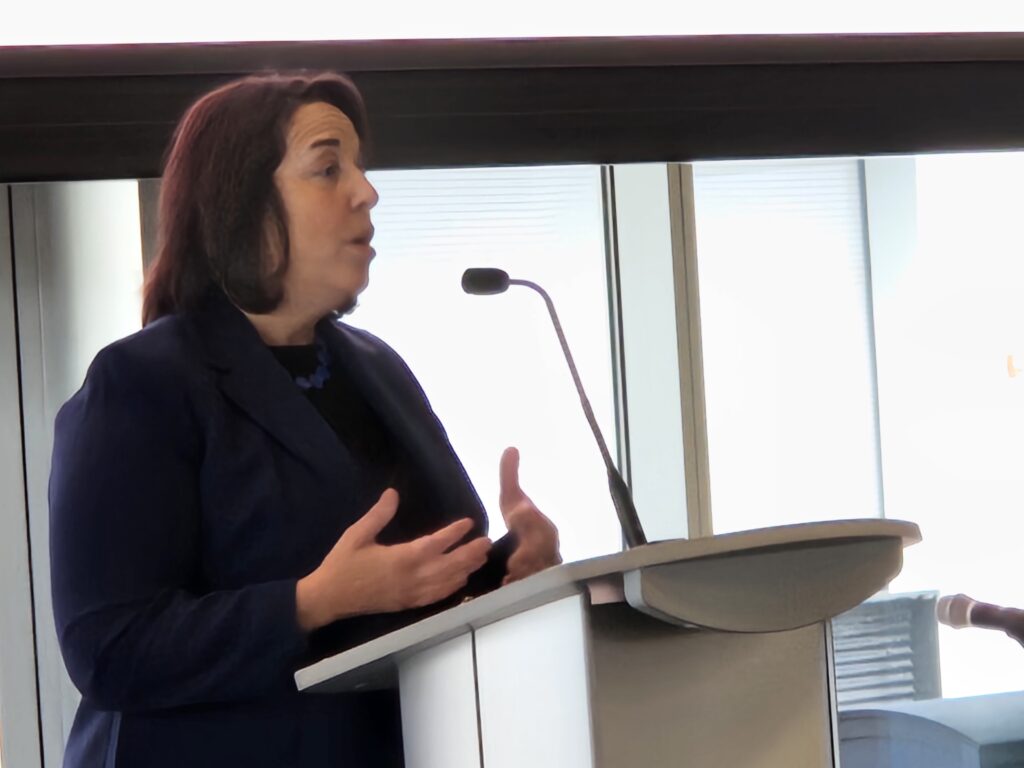
Addressing this crisis, Governor Maura Healey’s administration has prioritized housing, creating a cabinet-level position and appointing Secretary Ed Augustus, whose leadership has driven growth in Worcester. Together, they spearheaded the Affordable Homes Act, a $5.2 billion initiative to produce, rehabilitate, and preserve housing while enacting 49 supportive policies. These include promoting accessory dwelling units (ADUs) and expanding historic tax credits to revitalize old properties, particularly in Gateway Cities.
The act also established two commissions. The statewide housing plan advisory group, chaired by Driscoll, encourages communities to develop housing production plans. Meanwhile, the Unlocking Potential for Housing commission works to address barriers to development, emphasizing the importance of identifying growth-friendly areas like downtowns and transit hubs. This strategy, termed “smart growth” or transit-oriented development, balances housing expansion with preserving green spaces and fostering local economic activity.
Driscoll acknowledged ongoing challenges, such as zoning restrictions and local opposition to development. She urged community leaders, business stakeholders, and residents to engage in discussions about the benefits of housing and collaborate to create solutions. She celebrated the MBTA Communities Act, which has already spurred multifamily zoning in 30 regional communities, as an essential step forward.
As Massachusetts approaches its 250th anniversary, Driscoll framed housing development as an investment in the future, paralleling the revolutionary spirit of collaboration and innovation. She called for continued partnerships between state, local governments, and private sectors to create vibrant, inclusive communities that reflect the state’s historic leadership and commitment to equity. Through these efforts, she expressed hope for a brighter housing future that supports economic growth and generational opportunity.
Presentation of housing vision and priorities statement: Executive Director Jason Palitsch
Jason Palitsch, the Executive Director of the 495/MetroWest Partnership, a public-private collaboration with businesses, municipalities, and other stakeholders, gave a presentation on the Partnership’s vision and priorities for housing across our 36-community region.
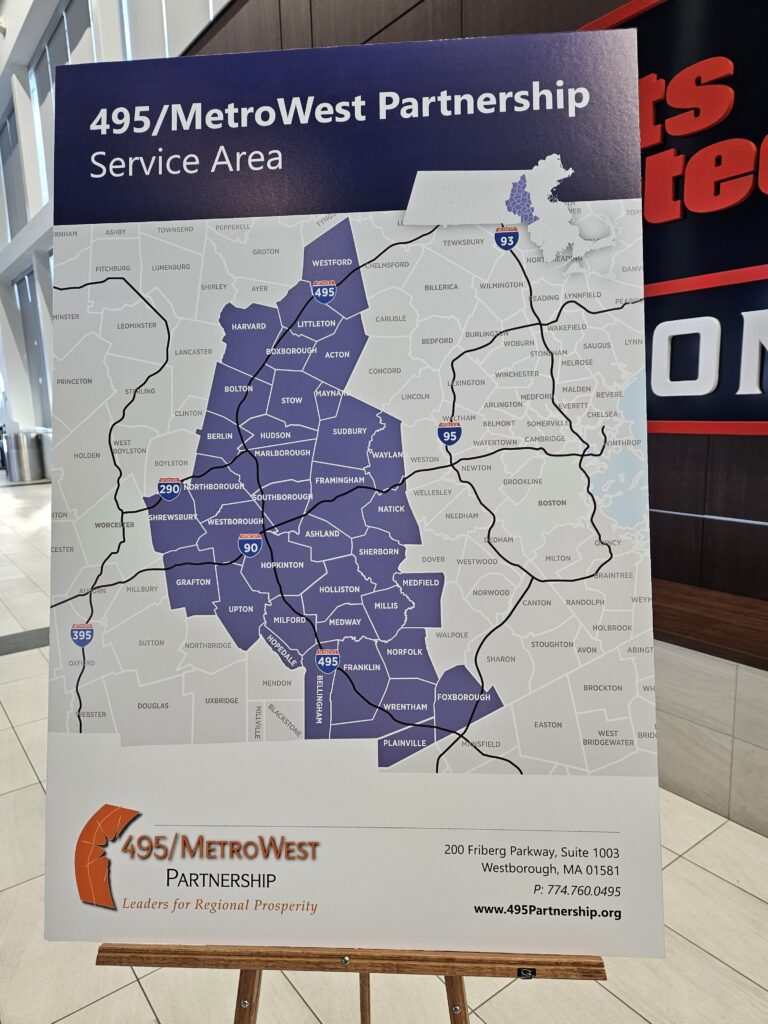
The 495/MetroWest Partnership has adopted a comprehensive vision and set of priorities for housing in the 495/MetroWest region, as outlined in their document dated December 4, 2024. This initiative stems from the strategic plan for 2022-2027, which emphasizes the need for increased housing diversity, particularly affordable and workforce housing. The primary objectives include fostering regional consensus on housing needs and advocating for resources to assist municipalities in developing diverse housing options.
The vision statement articulates that the region should experience sustainable economic growth alongside a variety of housing and transportation choices, making it an attractive place to live and work. The Partnership identifies a critical shortage of housing units in Massachusetts, which poses a threat to economic vitality. They assert that the creation of more affordable and diverse housing options is essential for various demographics, including young families and seniors wishing to downsize while remaining in their communities.
To support this vision, the document highlights several key points:
- Infrastructure Needs: Upgrades to water and sewer infrastructure are deemed necessary to facilitate substantial housing production. The Partnership stresses that these improvements should be prioritized alongside new housing developments to mitigate potential strains on municipal services.
- Diversity of Housing Types: There is a call for greater diversity in housing types within the region, noting that the current stock is predominantly single-family homes. The introduction of multifamily units and starter homes is seen as vital to meeting workforce needs.
- Community Involvement: All communities are encouraged to actively participate in addressing the housing crisis. The document advocates for greater public engagement and education about the causes and impacts of the housing shortage.
The Affordable Homes Act, signed into law on August 6, 2024, is supported by the Partnership as it introduces significant policy changes aimed at increasing housing availability. Key provisions include allowing accessory dwelling units (ADUs) by right in single-family zoning districts and creating tax credits for first-time homebuyers. The Partnership outlines specific housing priorities, such as:
- Supporting multifamily housing development near MBTA commuter rail stations.
- Encouraging inclusionary zoning practices that ensure a balance between affordable and market-rate housing.
- Investing in state programs that enhance infrastructure related to housing development.
Moreover, there is a focus on redeveloping contaminated sites to promote environmental sustainability while increasing the supply of affordable housing. The Partnership also supports state investment in innovative solutions for water reuse and financing vehicles that facilitate mixed-income housing projects. In conclusion, the 495/MetroWest Partnership’s vision emphasizes a collaborative approach involving state, municipal, and business stakeholders to address the pressing housing crisis effectively. The document calls for proactive measures, including legislative advocacy and community engagement, to foster an environment conducive to diverse and affordable housing development across the region.
Local networking by the Acton EDC with the Maynard EDC
The annual conference also provided networking opportunities for local officials. For example, members of the Acton EDC and Maynard EDC plan to get together for a cup of coffee to discuss how they can collaborate on economic development initiatives, especially with the Powder Mill Corridor development on the horizon.
Town Manager John Mangiaratti currently serves on the Board of Directors for the 495/MetroWest partnership and Acton’s former economic development director was part of the 495/MetroWest Planning and Economic Development Working Group.
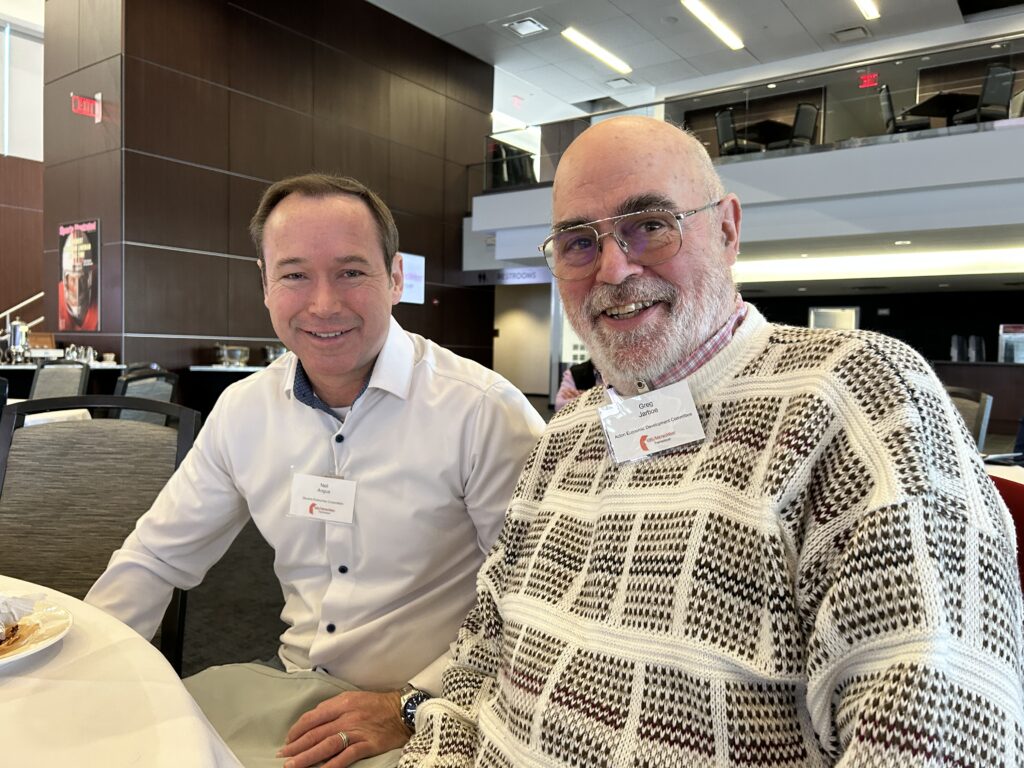
So, no town (in Massachusetts) is an island (except Nantucket). The interconnectedness of our communities was evident to everyone who attended the event at Gillette Stadium in Foxborough.
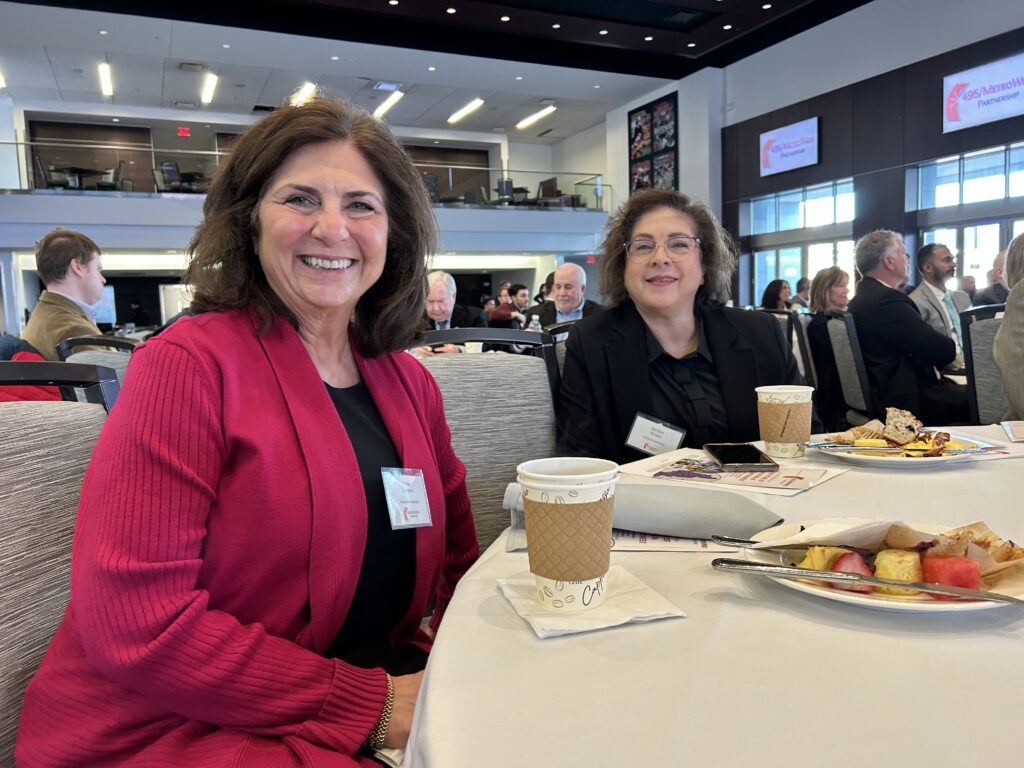
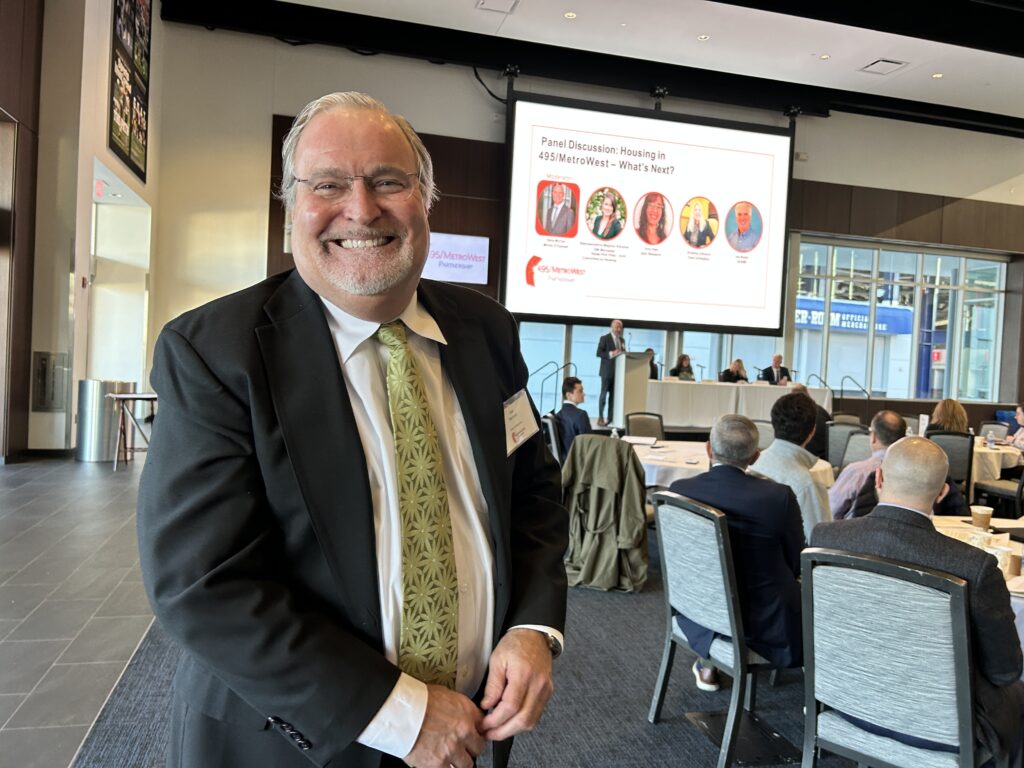
Greg Jarboe is Council on Aging beat reporter for the Acton Exchange and writes on other community events. He wore two hats at the 495/Metrowest Partnership event: Acton EDC’s representative and Acton Exchange’s reporter.
